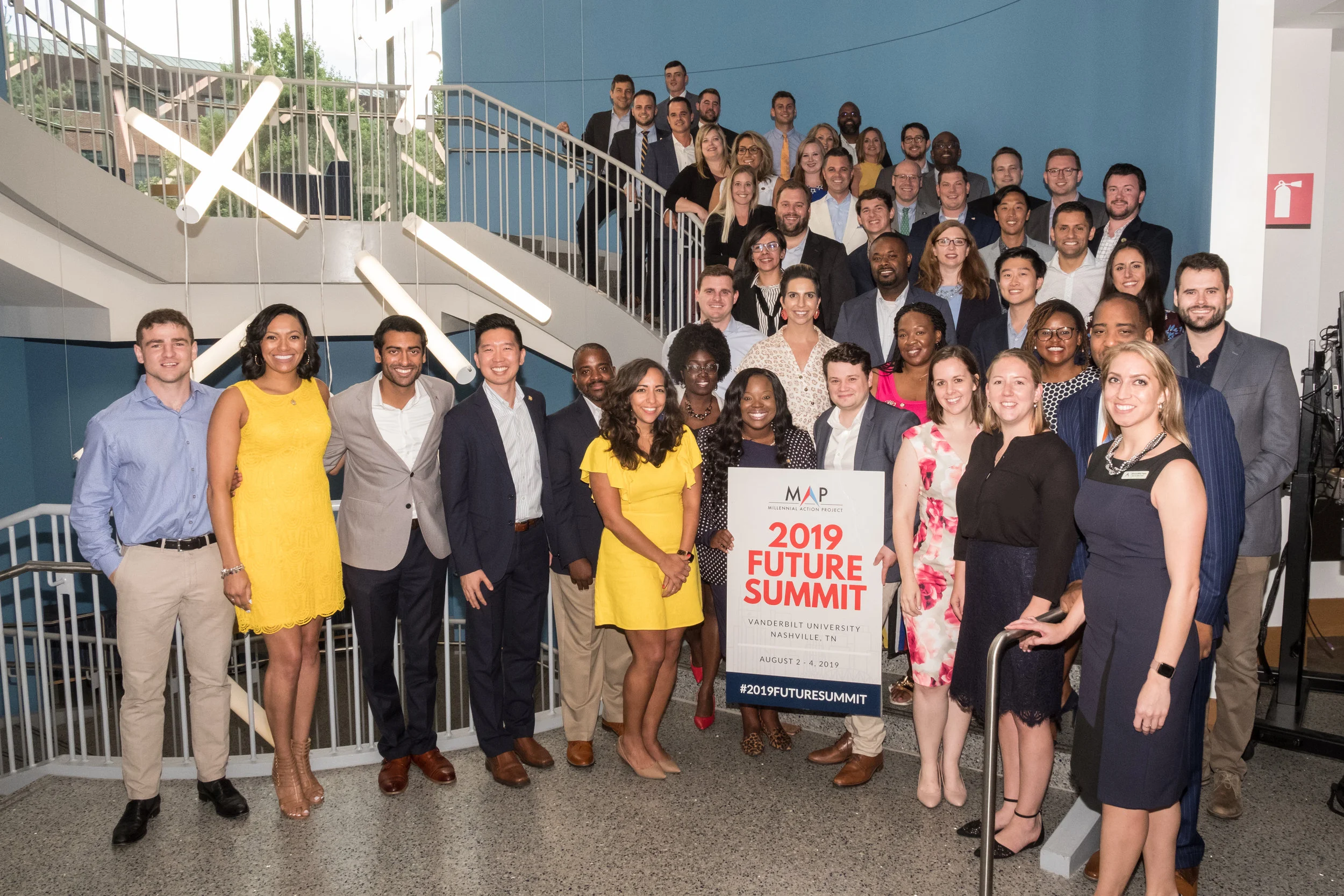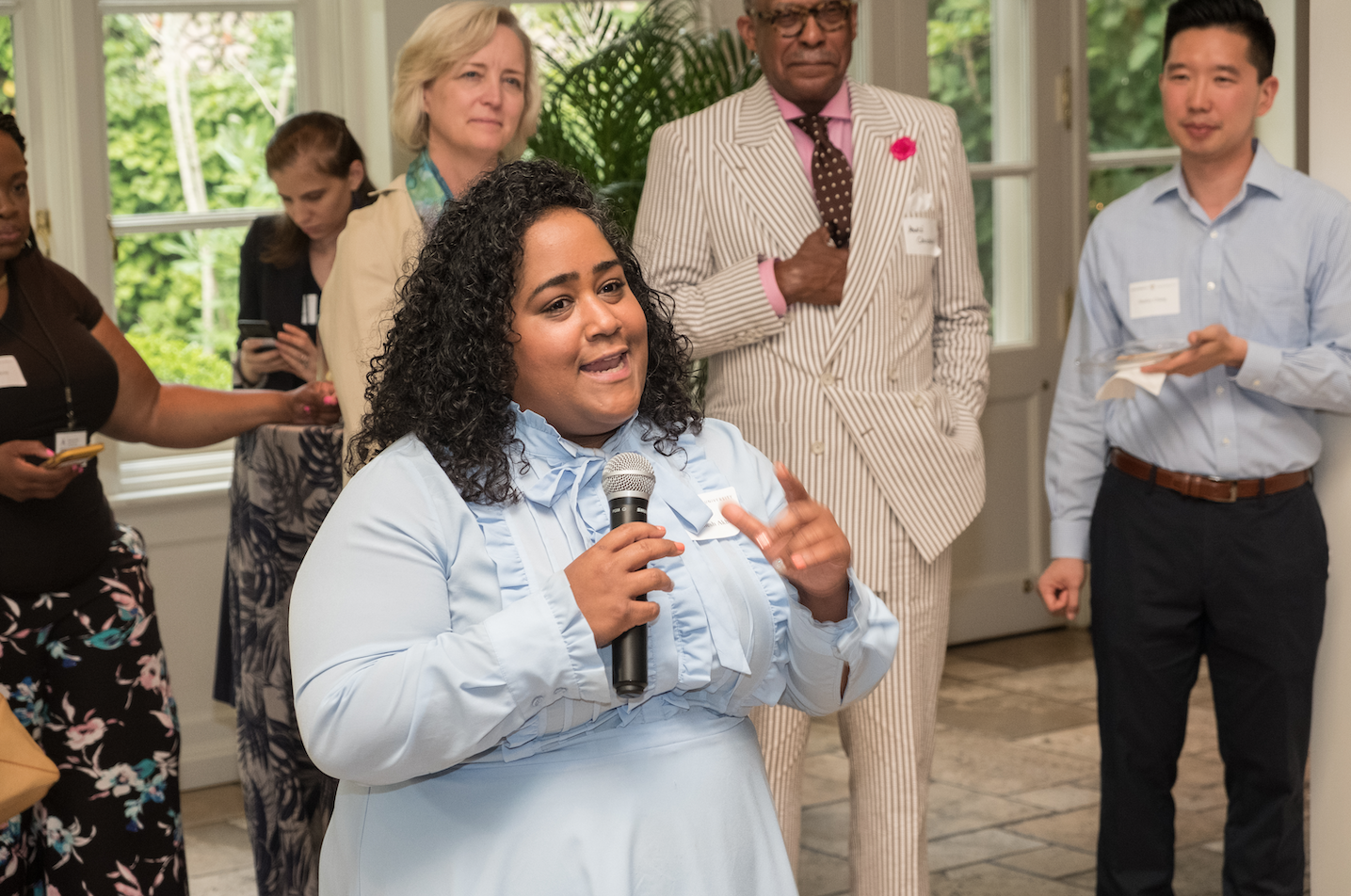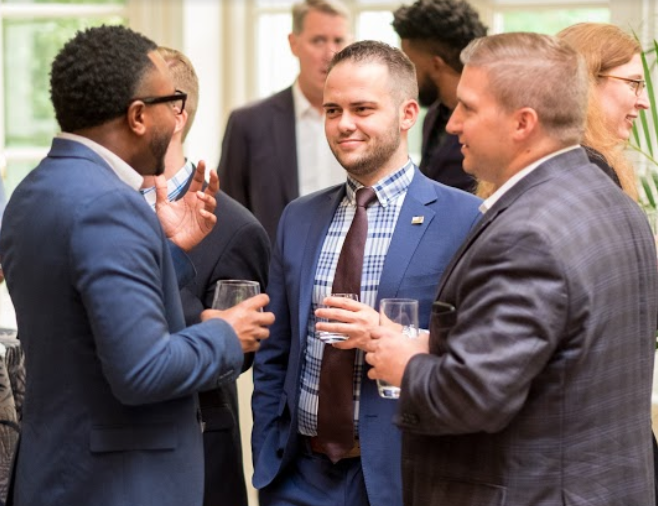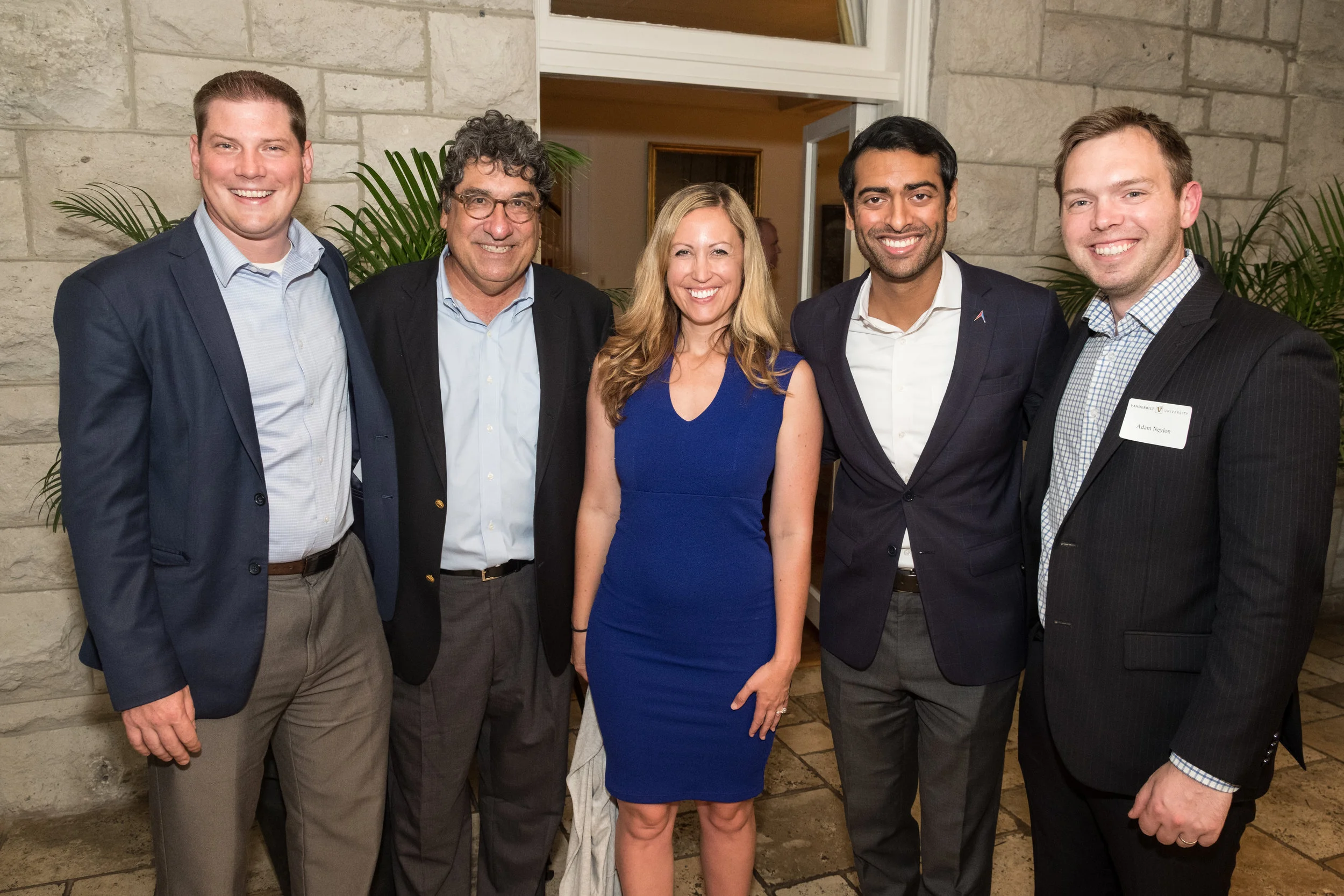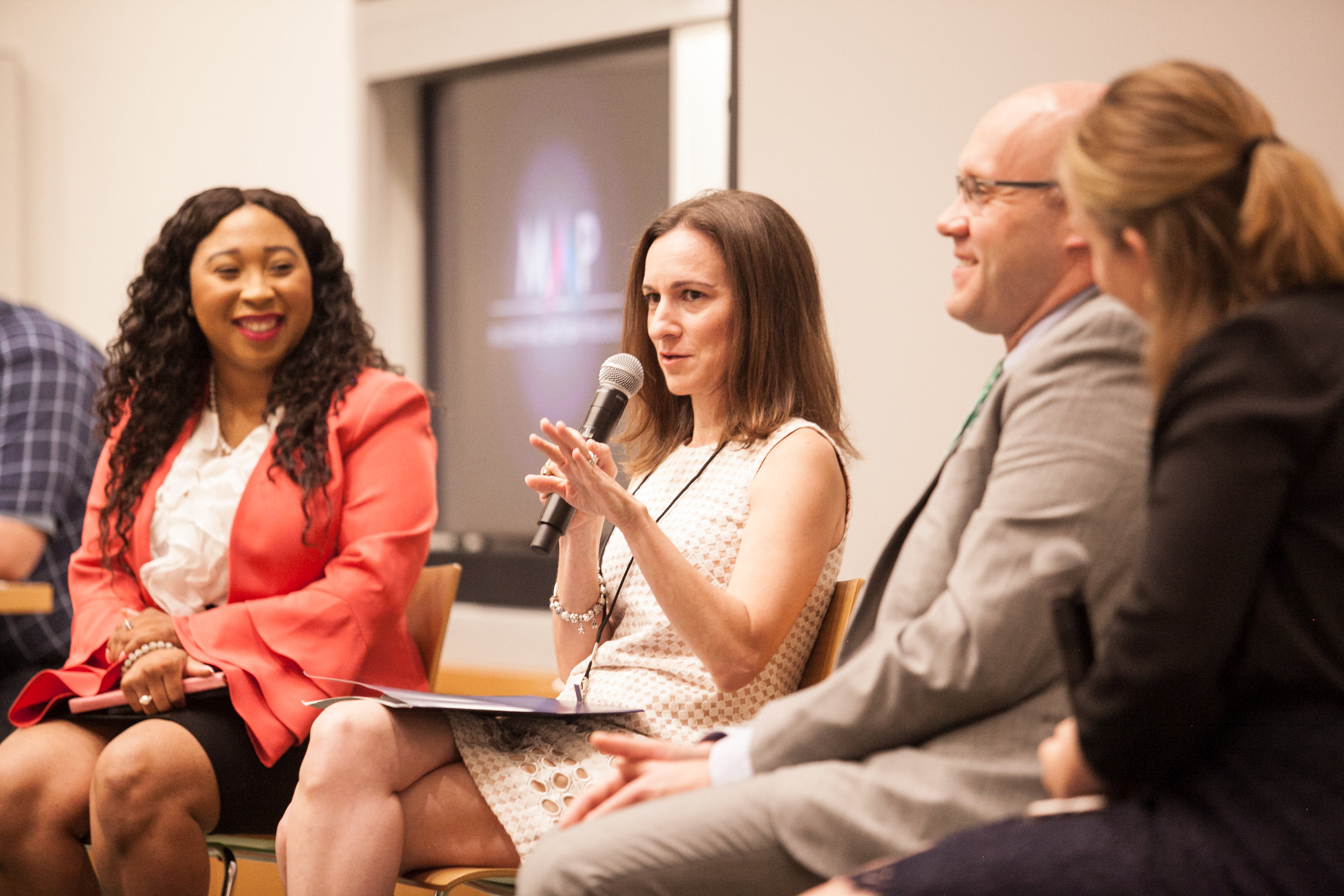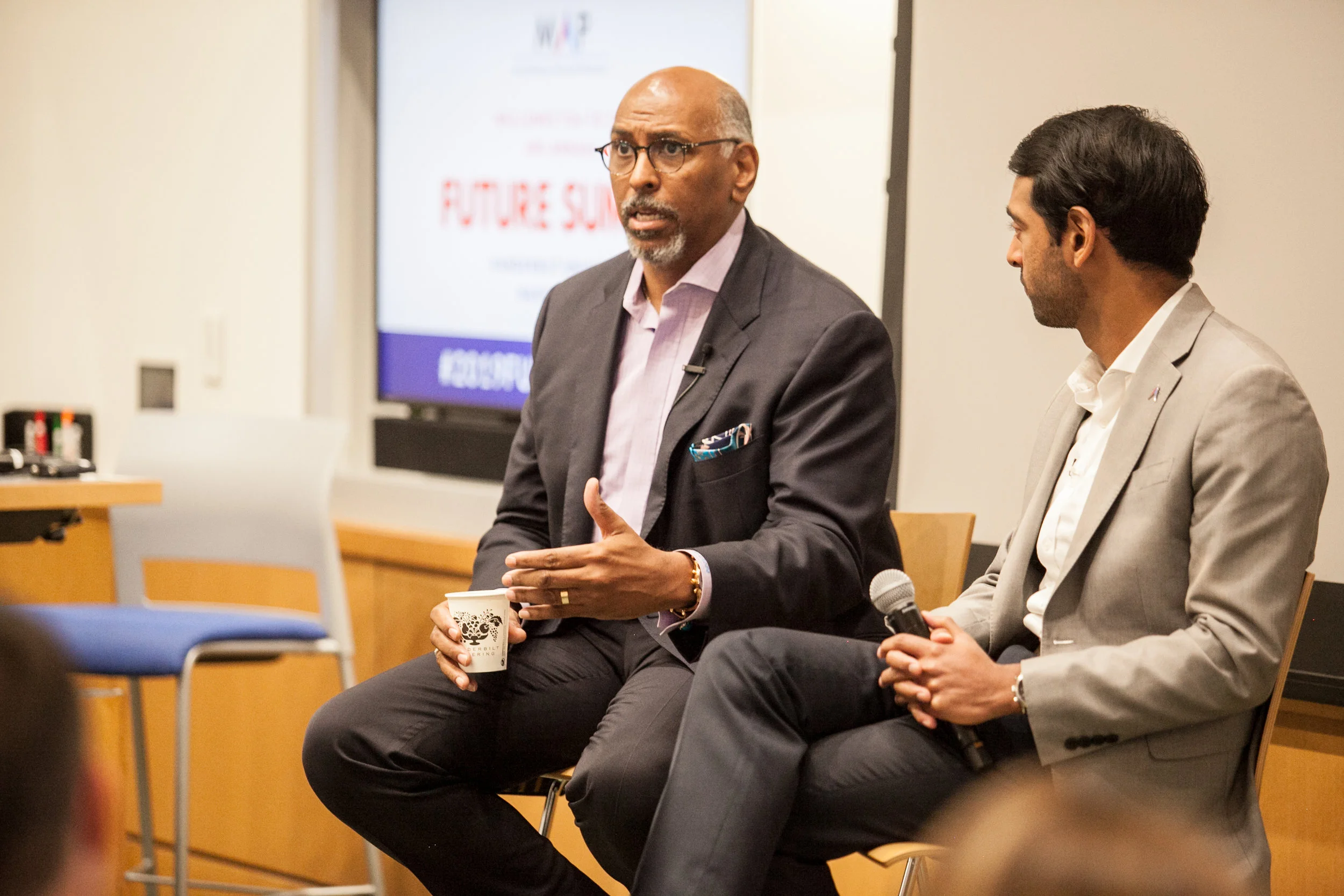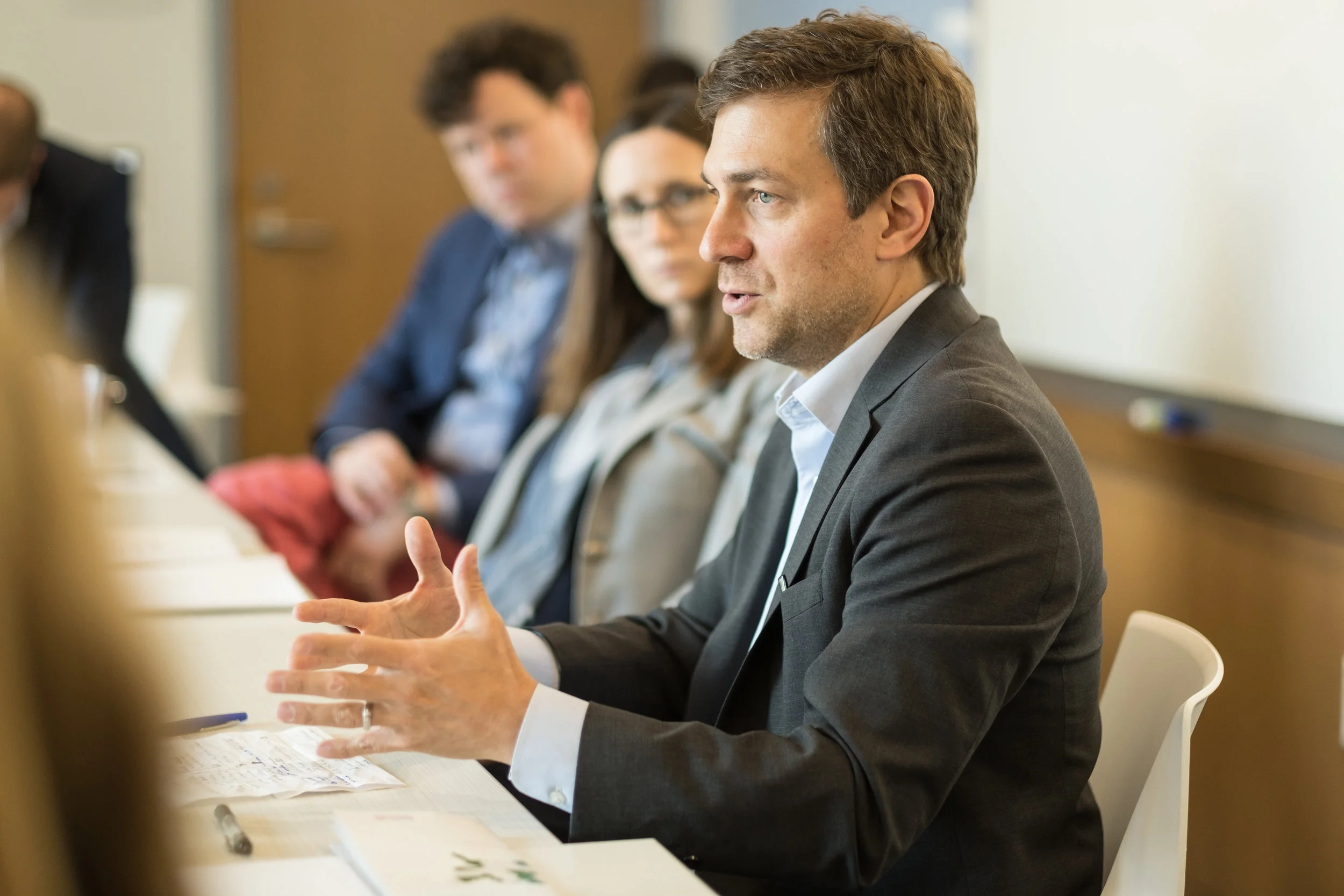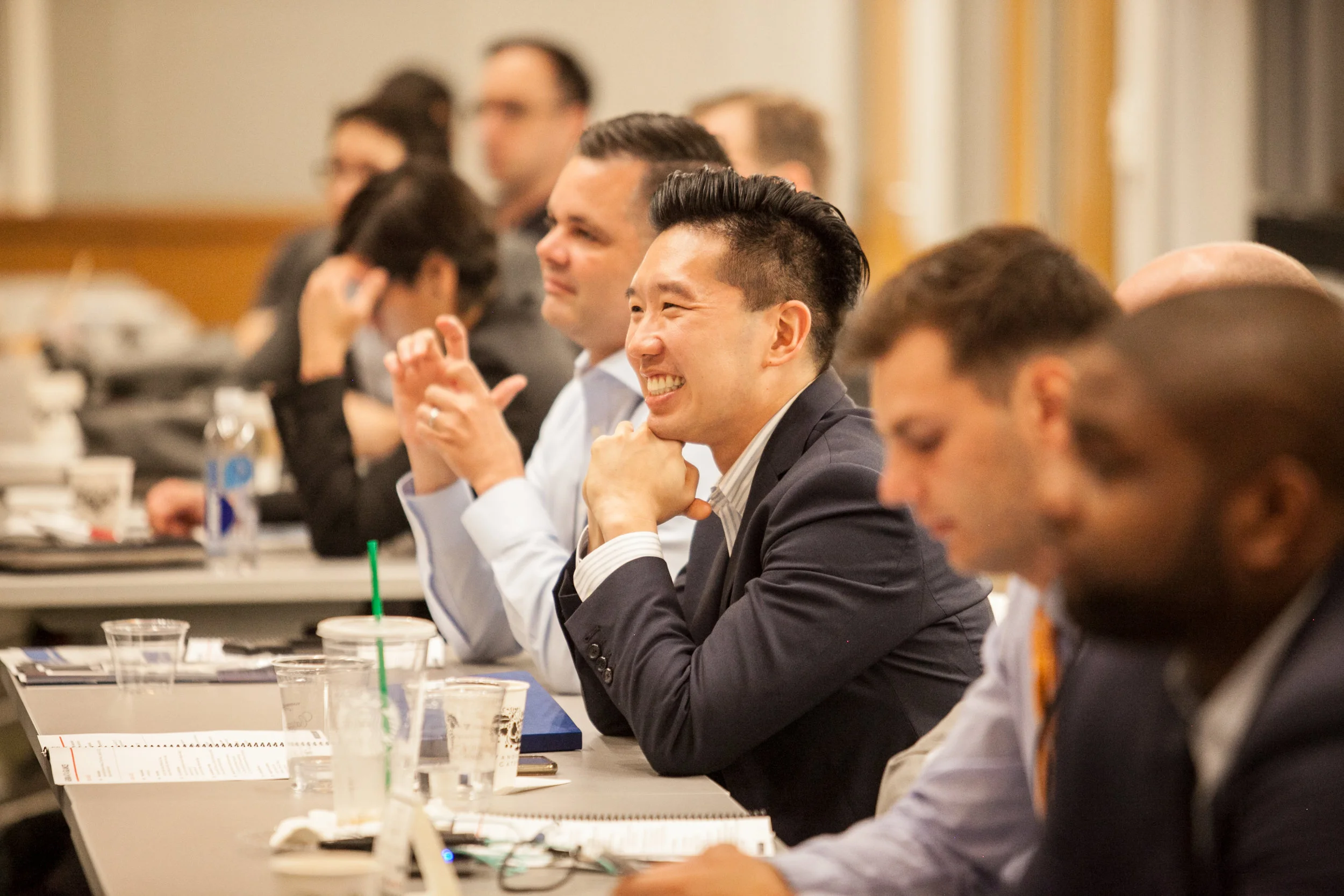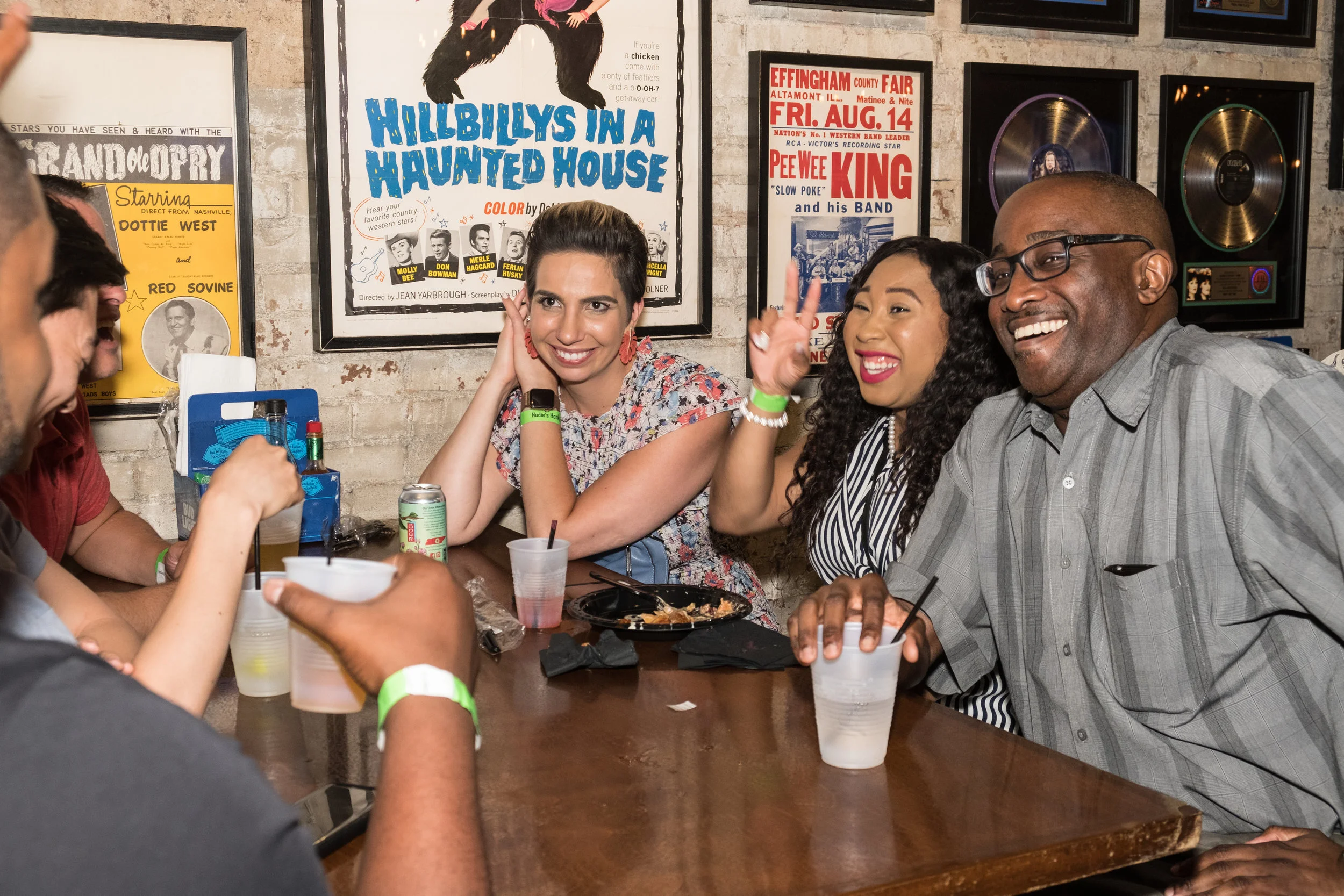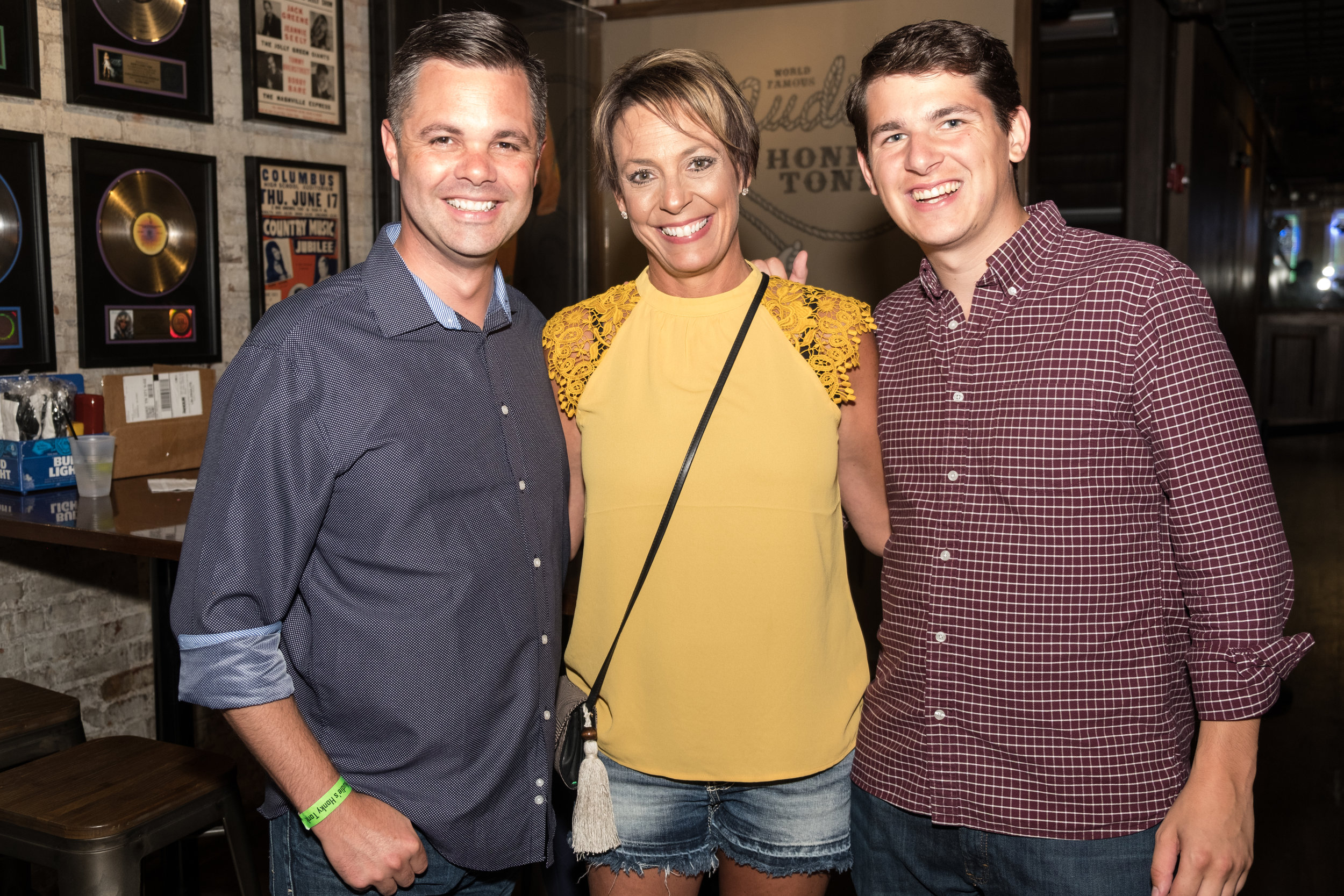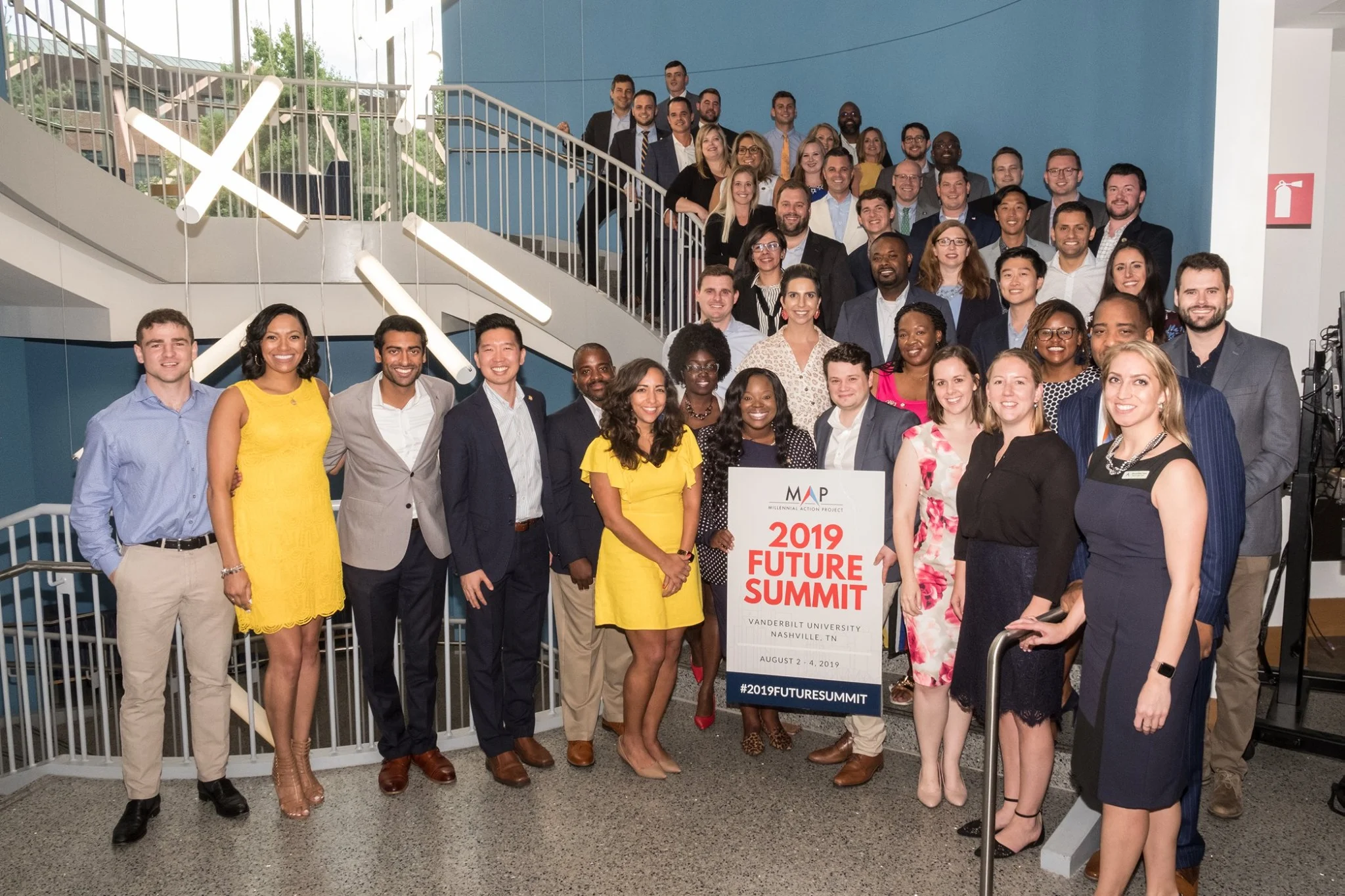From August 2-4, 2019, the Millennial Action Project partnered with Vanderbilt University to host the 3rd annual Future Summit. This year’s Summit was MAP’s largest yet with approximately 60 young legislators in attendance from 29 states, representing an astounding geographic and political diversity of young electeds committed to creating positive change.
These legislators represent a cross-section of the more than 700 bipartisan state legislators engaged with MAP’s 29 state Future Caucuses. Each caucus creates space for legislators to candidly debate and identify innovative policy solutions that address long-term issues facing younger generations. Future Summit attendees reflected on the big victories of the past year and prepared for more work ahead by sharing success stories, learning best practices from caucuses around the country, consulting with policy experts, and building their own action plans for the next year.
The weekend began with a welcome reception hosted by Vanderbilt University Chancellor Nicholas Zeppos. It featured remarks from MAP President Steven Olikara and Tennessee Future Caucus Co-Chair Senator Raumesh Akbari, and Chancellor Zeppos.
Programming kicked off Saturday morning with the panel “How to Tackle Polarizing Issues” that featured 2016 Vice-Presidential candidate Mindy Finn alongside Future Caucus Members Rep. Ajay Pittman of Oklahoma and Rep. Devin Carney of Connecticut. Panelists discussed their experiences governing and campaigning in the political minority in their respective states. They also touched on methods to reframe typically partisan debates and tactics to create consensus around important issues.
Legislators were then treated to a presentation from former RNC Chairman Michale Steele who built on the theme of finding common ground in polarized times. Steele, in a conversation with Steven Olikara, reiterated the importance of principles in the midst of changing political tides, and emphasized young elected official’s critical role in building the effective governance of tomorrow.
With these conversations as a foundation, legislators broke into small groups for the first of two policy breakout sessions. They selected from three policy area tracks: the Future of Work, Democracy Reform, and Brain Drain. Each session was led by a policy expert from a partner organization, who was joined by one Republican and one Democratic legislator with experience on the issue. Expert partners included the Brennan Center for Justice, Aspen Institute Future of Work Initiative, the Economic Innovation Group, and the TN Higher Education Commission.
The breakout policy panels served as a hands-on opportunity for legislators to share efforts underway in their own states, and cross-pollinate those ideas throughout the Future Caucus Network.
The policy experts introduced these issues and provided a national overview of the policy landscape—as well as an understanding of the nuanced political or administrative challenges that many legislators face when trying to enact practical and bipartisan solutions. Within the policy areas laid out, individual sessions focused on issues ranging from the 2020 Census and legislators’ renewed mandate to end partisan gerrymandering, to the role of legislatures in supporting entrepreneurship in the gig-economy.
After lunch, legislators participated in an open bill share sessions. This moment gave the participants an opportunity to engage in sharing some of the best ideas from across the country, and share their leadership on a variety of different issues including child safety, transportation, and more. Before heading to their second rounds of policy breakouts, attendees learned about the intersection of tech, innovation, entrepreneurship, and governing. In a panel conversation, Rep. Michael Caldwell (GA), Allie Brandenburger of The Bridge, and 1776 founder Evan Burfield touched on the relationship between the public and private sectors, and ways to leverage emerging opportunities.
To close out the first day of Future Summit, legislators explored the commonality of music, storytelling, and civic engagement. In discussion with Nashville locals and storytelling experts, Shannon Sanders and Dionne Lucas, MAP emphasized the power of narrative and creativity in identifying new ways of community engagement, that will ultimately drive our cities and states into the future. After this, legislators traded their blazers for cowboy boots and enjoyed some hot chicken, honky tonk music, and time for informal networking at MAP in Music City at Nudie’s Honky Tonk overlooking downtown’s raucous Broadway.
Sunday’s programming focused on implementing the lessons learned on Saturday, and creating tangible next steps for each Future Caucus. The day began with a panel moderated by MAP State Future Caucus Director Cherisse Eatmon that highlighted the big wins across the network over the last year. Attendees also received a briefing on MAP’s newly unveiled Best Practices for Future Caucus Success guide, designed to encourage the adoption of proven strategies for successful Future Caucus meetings, events, and legislative impact. As part of this exercise, attendees broke off into smaller workshop groups and developed a plan of action for their Future Caucus in 2020.
Next, attendees heard a special presentation from the Google Civics team, who shared tactics for legislators to optimize their digital presence and better reach constituents through new technology.
In culmination of the weekend’s activities, attendees were invited to participate in a spirited pitch competition to share their state’s Future Caucus plan headed into 2020. Participants were asked to incorporate elements of the Best Practices for Future Caucus Success, while showcasing their individual Caucus’ priority issues and creativity. A big congratulations to the delegation from Georgia for pulling together the winning pitch. We hope you proudly sport your new MAP swag!
Legislators came away with a bolstered belief in the mission of MAP and tangible plans of action to activate their constituencies around issues too often relegated to the purgatory of partisanship. MAP is grateful to the many participants and partners who made this year’s Future Summit the largest and most successful to date. We look forward to working with the entire State Future Caucus Network in charting new legislative victories in 2020.

